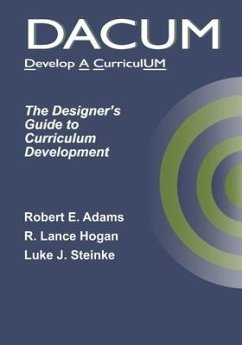Many trainers and instructional designers often struggle with the connection(or lack thereof) between the different phases of instructional design. We know that analysis is followed by design, which is followed by development and implementation, and that everything should culminate in an evaluation of the learning. One of the many struggles faced however is that most instructional design systems do not make a clear connection between these phases. While there are many valid models and concepts, when phases are treated as separate entities it tends to increase the amount of time and energy needed to successfully complete each. In turn, these misunderstandings lead many training and learning professionals to focus on aspects that are less valuable in developing effective training programs. Today's training and learning professionals face the unique challenges of not only designing programs that directly connect to what is done on the job and demonstrate successful transfer of skills, but also need to be done quickly. This desire for programs to be created quickly often leads to designers skipping important steps in developing an effective program. Many have asked if this better, more efficient way exists. The answer is the DACUM System. DACUM, standing for Develop A CurriculUM, was developed in 1968 by Robert E. Adams and has been successfully implemented by organizations world-wide. The DACUM System has experienced much success over they ears because unlike other instructional design systems, DACUM connects all the phases. Not only does the DACUM System connect all phases of instructional design, but it also can be done effectively in significantly less time than traditional instructional design. Since its inception however, there have been few accessible resources available on guiding someone through the DACUM System. Our purpose was to provide such resources and in 2015 we made available DACUM: The Seminal Book outlining the DACUM System as a whole. This book was followed by DACUM The Coordinator's Guide to Occupational Analysis, which was created to provide in-depth understanding of the Occupational Analysis process (Building a DACUM Chart), and DACUM: A History of Develop A Curriculum which outlines the history of the DACUM system. This book specifically focuses on the program/curriculum designer's role(often referred to as a coordinator) within the DACUM system and outlines everything one would need to build an effective DACUM learning program. Throughout this book we include specific models, illustrations and examples designed to walk potential program designers through the DACUM curriculum design process in greater detail than has ever been provided before. Also, within the book are strategies and techniques for effectively completing program development grids, orienting curriculum committees to the DACUM process, creating learning activities, designing printed and A/V materials, organizing Learning Activity Batteries, selecting human resources, implementing learning, evaluating learning, program refinement, and managing the DACUM learning program.
Hinweis: Dieser Artikel kann nur an eine deutsche Lieferadresse ausgeliefert werden.
Hinweis: Dieser Artikel kann nur an eine deutsche Lieferadresse ausgeliefert werden.








